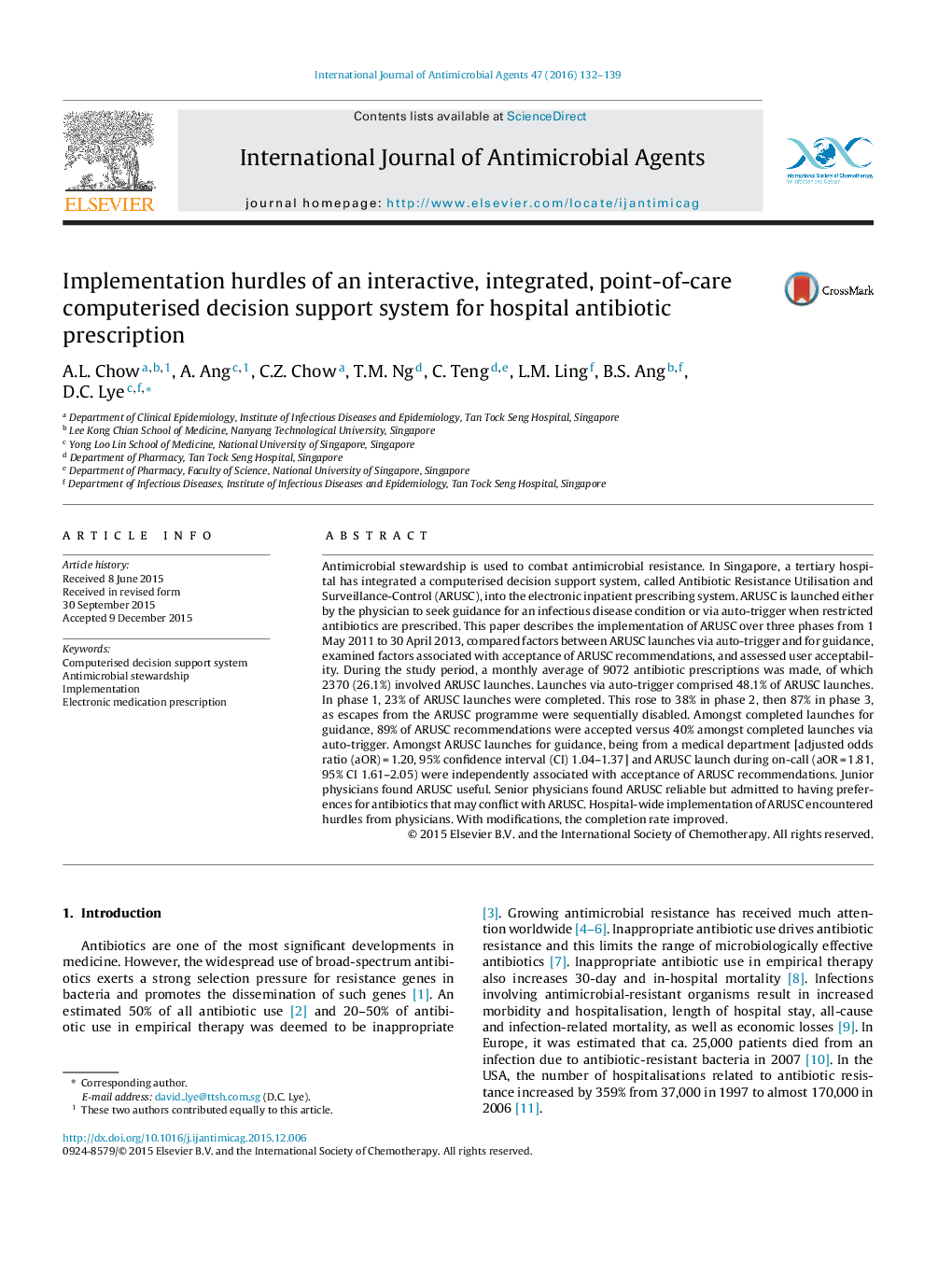| کد مقاله | کد نشریه | سال انتشار | مقاله انگلیسی | نسخه تمام متن |
|---|---|---|---|---|
| 3358442 | 1591757 | 2016 | 8 صفحه PDF | دانلود رایگان |
• Antimicrobial stewardship is used to combat antimicrobial resistance.
• ARUSC is a computerised decision support system for antibiotic prescription.
• Hospital-wide implementation of ARUSC encountered multiple hurdles.
• Completion of ARUSC was improved with modifications to prevent escapes.
Antimicrobial stewardship is used to combat antimicrobial resistance. In Singapore, a tertiary hospital has integrated a computerised decision support system, called Antibiotic Resistance Utilisation and Surveillance-Control (ARUSC), into the electronic inpatient prescribing system. ARUSC is launched either by the physician to seek guidance for an infectious disease condition or via auto-trigger when restricted antibiotics are prescribed. This paper describes the implementation of ARUSC over three phases from 1 May 2011 to 30 April 2013, compared factors between ARUSC launches via auto-trigger and for guidance, examined factors associated with acceptance of ARUSC recommendations, and assessed user acceptability. During the study period, a monthly average of 9072 antibiotic prescriptions was made, of which 2370 (26.1%) involved ARUSC launches. Launches via auto-trigger comprised 48.1% of ARUSC launches. In phase 1, 23% of ARUSC launches were completed. This rose to 38% in phase 2, then 87% in phase 3, as escapes from the ARUSC programme were sequentially disabled. Amongst completed launches for guidance, 89% of ARUSC recommendations were accepted versus 40% amongst completed launches via auto-trigger. Amongst ARUSC launches for guidance, being from a medical department [adjusted odds ratio (aOR) = 1.20, 95% confidence interval (CI) 1.04–1.37] and ARUSC launch during on-call (aOR = 1.81, 95% CI 1.61–2.05) were independently associated with acceptance of ARUSC recommendations. Junior physicians found ARUSC useful. Senior physicians found ARUSC reliable but admitted to having preferences for antibiotics that may conflict with ARUSC. Hospital-wide implementation of ARUSC encountered hurdles from physicians. With modifications, the completion rate improved.
Journal: International Journal of Antimicrobial Agents - Volume 47, Issue 2, February 2016, Pages 132–139
